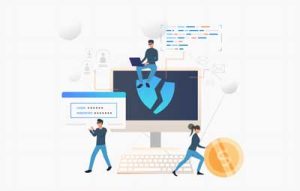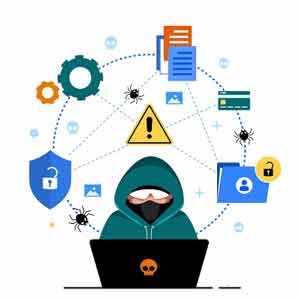The Ultimate Guide to Essential Security Tools for Small Businesses
In today’s digital age, small businesses are increasingly becoming targets for cyber threats. Implementing robust cyber security measures is not just an option; it is a necessity. This guide will delve into the ten must-have cyber security tools that every small business should consider to safeguard their digital assets.

1. Firewall Protection
A firewall acts as the first line of defense against cyber threats, monitoring incoming and outgoing network traffic and blocking malicious activities. It is essential for preventing unauthorized access to your network.
Benefits of Firewall Protection:
- Network Monitoring: Continuously monitors traffic for suspicious activity.
- Access Control: Blocks unauthorized access while allowing legitimate communication.
- Threat Prevention: Identifies and blocks potential threats before they can cause harm.
2. Anti-Malware Software
Anti-malware software protects your systems from various types of malware, including viruses, worms, and spyware. This tool is critical for detecting and removing malicious software that can compromise your data.
Key Features:
- Real-Time Protection: Constantly scans for malware in real-time.
- Automatic Updates: Regularly updates to protect against the latest threats.
- Comprehensive Scanning: Thoroughly scans files and programs to detect hidden malware.
3. Intrusion Detection Systems (IDS)
An IDS monitors network traffic for suspicious activities and potential threats. It helps in early detection of cyber attacks, allowing you to take immediate action.
Advantages:
- Early Warning System: Alerts you to potential threats before they cause damage.
- Detailed Reporting: Provides detailed logs and reports of suspicious activities.
- Compliance: Helps meet regulatory requirements for data security.
4. Virtual Private Network (VPN)
A VPN ensures secure communication over the internet by encrypting data. It is particularly useful for remote workers who need to access company resources securely.
VPN Benefits:
- Data Encryption: Protects sensitive information from eavesdropping.
- Remote Access: Enables secure access to company networks from anywhere.
- Anonymity: Hides your IP address, enhancing privacy and security.
5. Endpoint Security
Endpoint security solutions protect devices such as laptops, smartphones, and tablets from cyber threats. These tools are essential for securing the multitude of devices used in modern workplaces.
Features:
- Device Control: Manages and secures all endpoints connected to the network.
- Threat Detection: Identifies and mitigates threats specific to endpoints.
- Data Loss Prevention: Prevents data breaches by controlling access to sensitive information.
6. Data Encryption Tools
Data encryption tools protect sensitive information by converting it into unreadable code. This ensures that even if data is intercepted, it remains secure.
Key Benefits:
- Data Integrity: Ensures that data cannot be altered or tampered with.
- Confidentiality: Protects sensitive information from unauthorized access.
- Regulatory Compliance: Helps meet data protection regulations.
7. Security Information and Event Management (SIEM)
SIEM tools collect and analyze security data from various sources, providing a comprehensive view of your security posture. They are vital for detecting, analyzing, and responding to security incidents.
SIEM Capabilities:
- Centralized Monitoring: Aggregates data from multiple sources for unified monitoring.
- Advanced Analytics: Uses algorithms to identify patterns and anomalies.
- Incident Response: Facilitates quick and effective response to security incidents.
8. Multi-Factor Authentication (MFA)
MFA adds an extra layer of security by requiring multiple forms of verification before granting access. This significantly reduces the risk of unauthorized access.
MFA Advantages:
- Enhanced Security: Requires multiple proofs of identity, making it harder for attackers to gain access.
- User Verification: Ensures that only authorized users can access sensitive systems.
- Flexibility: Supports various authentication methods such as biometrics, SMS codes, and authentication apps.
9. Backup and Recovery Solutions
Regular backups are crucial for protecting against data loss due to cyber attacks, hardware failures, or other disasters. Backup and recovery solutions ensure that you can quickly restore your data.
Benefits:
- Data Protection: Safeguards critical data against loss or corruption.
- Disaster Recovery: Enables rapid recovery of data in case of an incident.
- Business Continuity: Minimizes downtime and ensures continuous operation.
10. Web Application Security
Web application security tools protect your online applications from threats such as SQL injection, cross-site scripting (XSS), and other vulnerabilities. These tools are essential for safeguarding customer data and maintaining trust.
Key Features:
- Vulnerability Scanning: Identifies and mitigates vulnerabilities in web applications.
- Application Firewall: Blocks malicious traffic and prevents attacks.
- Compliance: Ensures that your applications meet security standards and regulations.


